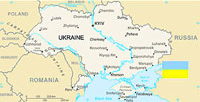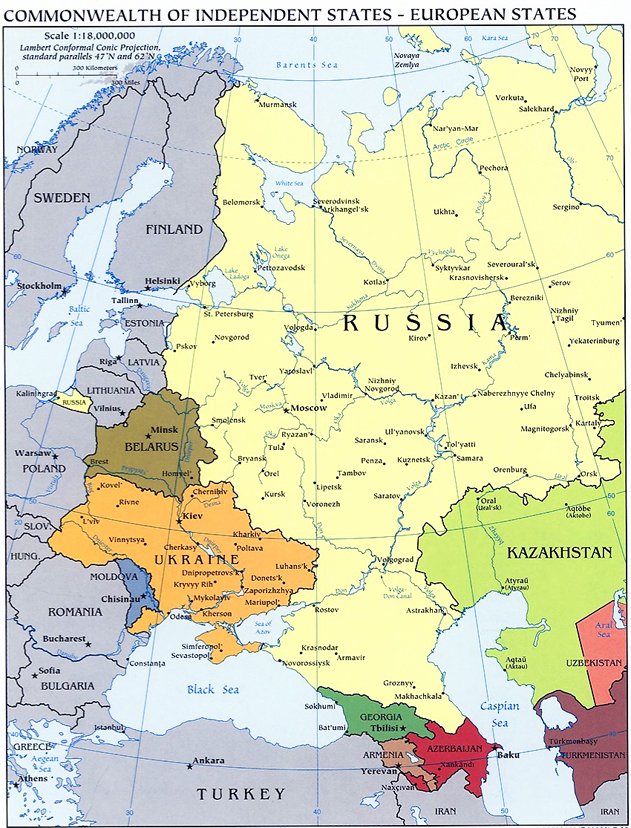Why Diplomats Curse About Ukraine

(Bloomberg – bloomberg.com – Leonid Bershidsky – June 16, 2014) The escalating conflict in Ukraine marks an unfortunate tendency in the world of international relations: The people responsible for defusing the crisis are losing their ability to be diplomatic.
The latest gaffe came June 14, when Ukrainian Foreign Minister Andriy Deshchytsia tried to calm a mob that had attacked the Russian embassy, overturning cars and hurling Molotov cocktails, to protest the shooting down of a Ukrainian military transport plane near Lugansk, in which 49 people were killed. Deshchytsia ended up joining the protesters in singing a popular ditty first performed by right-wing soccer fans: “Putin khuilo, lalala lalala.” Khuilo is a profanity that could be roughly translated as “penis head,” which the singers were using to refer to Russian President Vladimir Putin.
The Ukrainian foreign minister later said he had sung with the crowd to defuse the situation: “At that moment, the important thing was to hold the people back.” U.S. Ambassador to Ukraine Geoffrey Pyatt bought this version, tweeting that the foreign minister was “a skilled diplomat and a credit to Ukraine.”
Whatever his motivation, Deshchytsia is far from alone in testing the bounds of diplomatic behavior. In March, U.S. Assistant Secretary of State Victoria Nuland (with Pyatt on the line) famously dismissed the European Union’s mediation efforts by saying “F–k the EU.” Also in March, Vitali Churkin, Russia’s ambassador to the United Nations, elicited public anger from his counterpart, Samantha Power, with a sarcastic anti-Ukraine speech. The Russian ambassadors to Zimbabwe and Eritrea were taped exchanging profane comments about a U.N. vote to censure Russia for its behavior in Ukraine and jokingly speculating that “Alaska will be next.”
Russian Foreign Minister Sergei Lavrov hasn’t responded harshly to Deshchytsia, perhaps remembering how in 2008, soon after Russia sent troops to Georgia, he allegedly employed a version of the F-word in telling his U.K. counterpart, David Miliband, not to lecture him. More recently, Lavrov laughed loudly in response to the Polish foreign minister’s remark that he hoped Russia would not stage a repeat of the Crimea annexation elsewhere, leaving top European diplomats at a loss as to how to react.
The barrage of obscenity and emotional, blithely unprofessional behavior is highly unusual for top-flight diplomacy. It’s tempting to write off the gaffes to the poor training of political appointees, but Deshchytsia, Nuland, Lavrov and the Russian ambassadors are all career diplomats who know perfectly well how to compose themselves and what isn’t safe to say in public and on unsecured lines.
One possible explanation is that the Ukraine crisis has taken these skilled, polished negotiators into uncharted territory. While corrupt regimes had been overthrown before and last year’s Ukrainian revolution wasn’t a groundbreaking event, Russia’s invasion of Crimea was a first for a European country in the post-World War II era. It was difficult for both Ukrainians and Westerners to contain the emotions it caused. For the Russians, too, the adventure became a defining moment as the world united against them.
To make things worse, none of the parties is truly in control. Had Deshchytsia not sung the ditty, there’s no telling what the crowd would have done to him. The same protesters forced a parliamentary deputy, who had also attempted to calm them down, to throw a stone at the embassy, then demanded he sell his Lexus sedan and donate the proceeds to the poverty-stricken Ukrainian military. Western efforts to de-escalate the conflict have been eminently ineffective, and European Union-mediated natural gas talks between Ukraine and Russia have broken down. Russia has instigated the armed conflict in eastern Ukraine by arming the secessionist rebels and allowing Russian nationalist fighters to join them, but Moscow is hardly able to stop the fighting: Trigger-happy local criminals are now too invested in some kind of victory to stop shooting.
Diplomats are left to curse from the sidelines because the whole affair has been a spectacular failure for diplomacy. The crisis might not be their fault, but they will not be remembered for what they did to resolve it.
Article ©2014 Bloomberg L.P. All Rights Reserved. Article also appeared at bloombergview.com/articles/2014-06-16/why-diplomats-curse-about-ukraine

